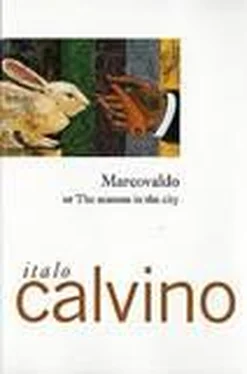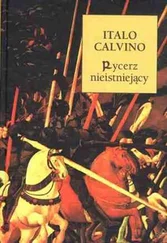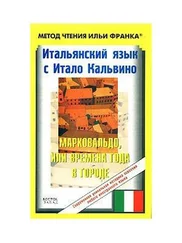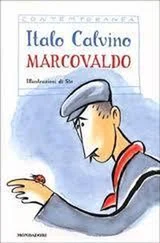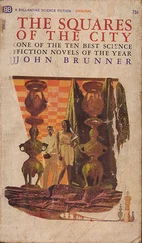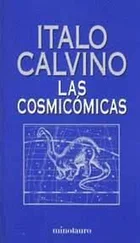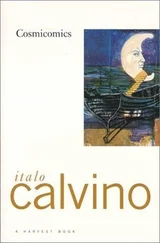The next day, turning up at work, he felt the storm brewing. He dressed again as Santa Claus, in great haste, loaded the presents to be delivered onto the truck, already amazed that no one had said anything to him, and then he saw, coming towards him, the three section chiefs: the one from Public Relations, the one from Advertising, and the one from Sales.
"Stop!" they said to him. "Unload everything. At once!"
This is it, Marcovaldo said to himself, and could already picture himself fired.
"Hurry up! We have to change all the packages!" the three section chiefs said. "The Society for the Implementation of Christmas Consumption has launched a campaign to push the Destructive Gift!"
"On the spur of the moment like this," one of the men remarked. "They might have thought of it sooner…"
"It was a sudden inspiration the President had," another chief explained. "It seems his little boy was given some ultra-modern gift-articles, Japanese, I believe, and for the first time the child was obviously enjoying himself…"
"The important thing," the third added, "is that the Destructive Gift serves to destroy articles of every sort: just what's needed to speed up the pace of consumption and give the market a boost… All in minimum time and within a child's capacities… The President of the Society sees a whole new horizon opening out. He's in seventh heaven, he's so enthusiastic…"
"But this child…" Marcovaldo asked, in a faint voice: "did he really destroy much stuff?"
"It's hard to make an estimate, even a hazy one, because the house was burned down…"
Marcovaldo went back to the street, illuminated as if it were night, crowded with Mammas and children and uncles and grannies and packages and balloons and rocking horses and Christmas trees and Santa Clauses and chickens and turkeys and fruit cakes and bottles and bagpipers and chimney-sweeps and chestnut vendors shaking pans of chestnuts over round, glowing, black stoves.
And the city seemed smaller, collected in a luminous vessel, buried in the dark heart of a forest, among the age-old trunks of the chestnut trees and an endless cloak of snow. Somewhere in the darkness the howl of the wolf was heard; the hares had a hole buried in the snow, in the warm red earth under a layer of chestnut burrs.
A jack-hare came out, white, onto the snow, he twitched his ears, ran beneath the moon, but he was white and couldn't be seen, as if he weren't there. Only his little paws left a light print on the snow, like little clover leaves. Nor could the wolf be seen, for he was black and stayed in the black darkness of the forest. Only if he opened his mouth, his teeth were visible, white and sharp.
There was a line where the forest, all black, ended and the snow began, all white. The hare ran on this side, and the wolf on that.
The wolf saw the hare's prints on the snow and followed them, always keeping in the black, so as not to be seen. At the point where the prints ended there should be the hare, and the wolf came out of the black, opened wide his red maw and his sharp teeth, and bit the wind.
The hare was a bit farther on, invisible; he scratched one ear with his paw, and escaped, hopping away.
Is he here? There? Is he a bit farther on?
Only the expanse of snow could be seen, white as this page.

***

